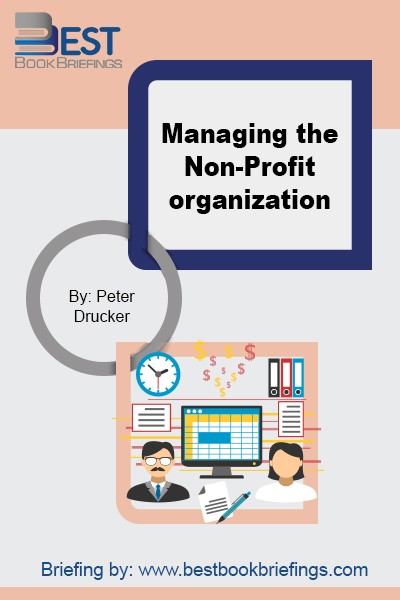Management
Tasks, Responsibilities, Practices
Number of pages: 864
Publisher: Harper Business
BBB Library: Business Classics, Operations Management
ISBN: 978-0887306150
Editorial Review
Written by Peter F. Drucker, “the” best management guru, writer, speaker, and consultant to ever live, it lays all the basics of what management is, how it should be carried out, and in which direction should it be heading. This reference book is an excellent source for any aspiring manager, whether he is just a beginner or a C-level executive, for it provides many gems that lead corporations to excellence and success.
Book Reviews
Books on Related Topics

In 1983, Dr. Rosabeth Moss Kanterwrote The Change Masters, a practical book which had a major impact on the conduct of American business and management.Sheargued that American business was facing an unfavorable economic and social environment and in dire need of an American corporate Renaissance. In executive suites throughout America, The Change

The true nature of management is humanity. Unfortunately, the idea of the humanity of management is not yet widely understood. We all used to consider management as a kind of technology based on scientific observation, tended by experts and transferable to students. This idea has its roots firmly planted in the American

A half century ago, Peter Drucker put management on the map. Leadership has since pushed it off the map. We are now inundated with stories about the grand successes and even grander failures of the great leaders. But we have yet to come to grips with the simple realities of being

In The Future of Management, Gary Hamel argues that organizations need management innovation now more than ever. Why? The management paradigm of the last century—centered on control and efficiency—no longer suffices in a world where adaptability and creativity drive business success. To thrive in the future, companies must reinvent management.

Management by objectives is the process of defining specific objectives within an organization that management can convey to organization members, then decide on how to achieve each objective in sequence. According to George S. Odiorne, the system of management by objectives can be described as a process whereby the superior and

This landmark book not only influenced positively many major manufacturing companies across the globe, but it also set grounds for the first business degree offered by Harvard University back then around 1910. In the book, Taylor simply laid out the fundamentals of scientific management, followed by the principles. He confronted the

Since the first edition of this book in 1954, it was considered as the first book to give a big picture of management and a typical road map to view the modern business. It created the main principles, concepts, and facts about modern management practices. Although this book was written more than

While the world’s workplace has been going through extraordinary historical change, the practice of management has been stuck in time for more than 30 years. Packed with 52 discoveries from Gallup’s largest study on the future of work, It’s the Manager shows leaders how to adapt their organizations to rapid change, ranging

One factor, more than any other, causes the problems business leaders fear most. Lackluster performance, sinking profits, and unmet stockholder expectations all stem from one source: a massive decline in employee engagement. Rather than blaming employees themselves for the decline, however, the Workplace Accountability Study reveals how to fix it: the






